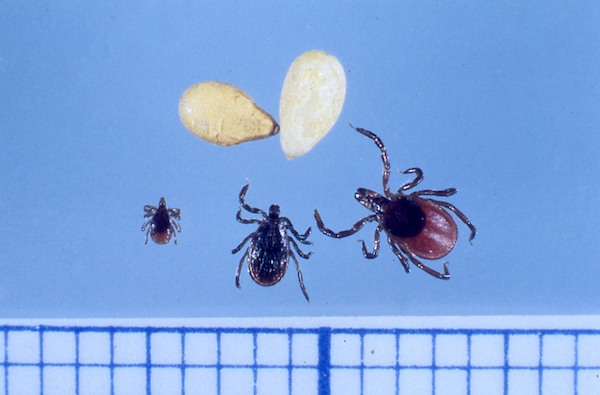
Warren County warns of large increase in tick disease
Anaplasmosis cases rise significantly
Warren County Health Services is warning the public about a surge in local cases of a once-rare disease that is caused by bites from ticks.
Warren County Health Services has documented 40 cases of anaplasmosis so far in 2021, a fourfold increase over the 9 cases diagnosed last year during the same time period, and more than double the number of cases during the same periods in 2018 and 2019 combined.
Warren County data show that this year’s cases involve residents from all corners of the county, indicating infected ticks are widespread.
“This dramatic increase is concerning, as anaplasmosis can cause serious illness if not diagnosed properly and treated promptly,” explained Ginelle Jones, Warren County Health Services director. “The increased presence of this disease is yet another reason to be vigilant about taking precautions to avoid tick bites.”
Anaplasmosis is caused by bacteria transmitted from an infected tick, and with some people the infection can be more severe than Lyme Disease. Several local residents who have been infected have been hospitalized.
Early signs and symptoms (days 1-5 after tick bite) are usually mild or moderate and may include:
- Fever and/or chills
- Severe headache
- Muscle aches
- Nausea, vomiting, diarrhea, loss of appetite
If left untreated, anaplasmosis can cause respiratory problems, bleeding, organ failure and even death. Older people and the immunocompromised are more prone to serious illness from anaplasmosis.
Those who go to woods, grassy areas or fields where ticks are present should take precautions that include:
- Wearing clothing treated with permethrin to kill ticks.
- Using insect repellent on exposed skin. Effective repellents include DEET, picaridin, IR3535, Oil of Lemon Eucalyptus (OLE), para-menthane-diol (PMD), or 2-undecanone.
- Wearing light colored clothing and a hat, and wearing long pants tucked into socks, long-sleeved shirts fitted at wrists and closed-toe shoes.
- Walking in the middle of the trail when hiking.
- Performing a full body check, including in hair, and checking clothing for ticks after an outing. Showering after an outing is highly recommended.
Warren County will be adding warning signage about tick activity at high-profile outdoor areas.
While the reasons behind the increase are unclear, Ginelle Jones said tick bites are typically preventable.
“The same methods we have used to combat Lyme Disease and other tickborne illnesses, such as wearing proper clothing, use of insecticides and efforts to thoroughly check for ticks after being outside, can help us avoid anaplasmosis,” Jones noted.
For more information on prevention and treatment of anaplasmosis, log on to https://www.cdc.gov/anaplasmosis/index.htm
